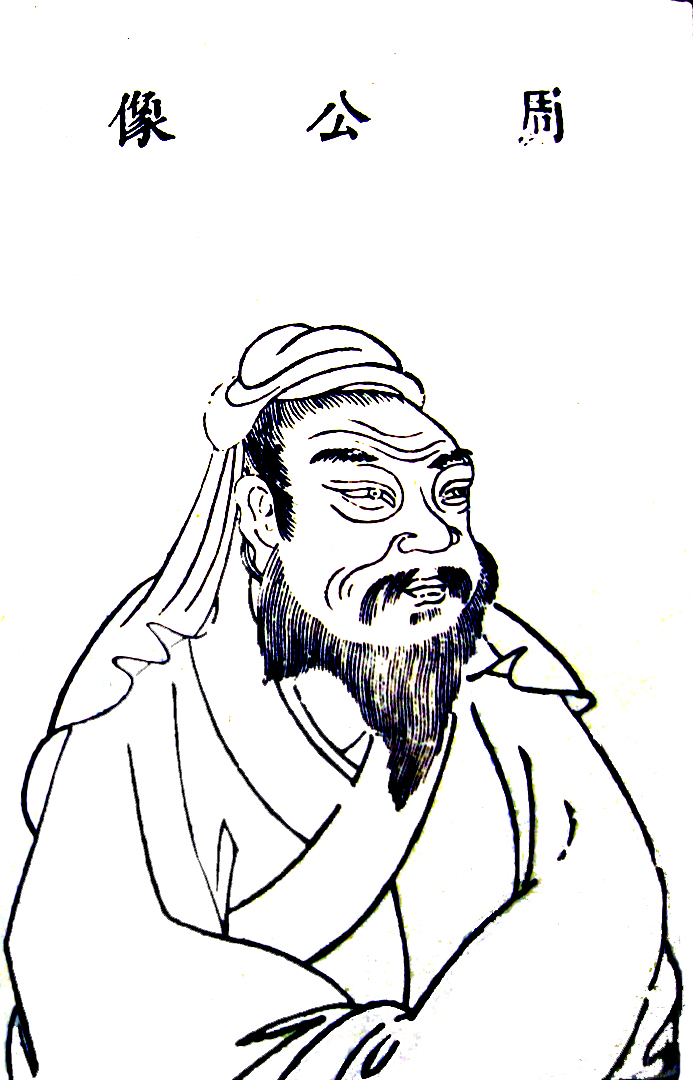Working night and day(夜以繼日)
In Chinese history, the longest lasting
dynasty was the Zhou Dynasty, and its founder was (Ji Fa).
Ji Fa's father was Ji Chang, who was the
king of the Zhou Kingdom.
After Ji Fa led the people of the Zhou
Kingdom to overthrow the rule of the Shang Dynasty in 1046 BC, he managed the
Zhou Dynasty very carefully, but three years later Ji Fa fell ill and died.
After Ji Fa's death, his 13-year-old son
inherited the throne.
Ji Fa's younger brother was Ji Dan, who was
the most outstanding politician of the early Zhou dynasty.
He assisted the 13-year-old king in running
the Zhou dynasty. He created many new laws and systems based on the government
organisation and management structure of the ancient Chinese Xia Dynasty, Shang
Dynasty and Zhou Kingdom.
Compared to the Zhou dynasty, the land area
administered by the Zhou dynasty became larger and the population became
larger. In addition, due to the changes in time and space, the laws and systems
established by Ji Dan could not be fully applied to the society at that time.
As Ji Dan began to implement the laws and
systems he had created, he began to observe their effectiveness and to think
about whether they could be optimised and improved.
In order to optimise and improve these laws
and systems, Ji Dan often thought about them from evening to morning. If Ji Dan
found that there were areas where these systems could be optimised, he would
not hesitate to carry out reforms immediately.
Thanks to Ji Dan's careful planning of
these laws and systems, Ji Dan helped lay the foundation for the Zhou dynasty's
rule, which lasted for more than 790 years.
This idiom literally means to work from
night to day.
It is used to describe a person who works
hard all the time.
Dear friends, what inspiration or thoughts
do you get after listening to this story?
Do you adjust your lifestyle according to
your actual living conditions? Do you have the habit of constantly optimising
and improving your life or work?
I hope this story can give you some new
insights.
夜以繼日(Working night and day)
中國歷史上,持續最長時間的朝代是周王朝,周王朝的建立者是(姬發)。
姬發的父親的名字叫姬昌,姬昌是周王國的國王。
姬發在西元前1046年帶領周王國的百姓百姓推翻商王朝的統治之後他很用心的管理周王朝,但是在3年後姬發就生病死了。
姬發死後他的13歲的兒子繼承他的王位。
姬發的弟弟的名字叫做姬旦,姬但是周王朝初期最傑出的政治家。
他協助年紀只有13歲的國王管理周王朝,他參考中國古代的夏王朝和商王朝和周王國的政府組織與管理架構創建了很多新的法律與制度。
相較於周王國時代,周王朝管理的土地面積變得很大而且人民變的很多,加上時間與空間的變化所以姬旦所建立的法律與制度無法完全適用於當時的社會。
姬旦開始執行他所建立的這些法律與制度實施後,(姬旦)就開始觀察其成效並且思考是否還能在優化與改進。
為了優化與改進這些法律與制度,姬旦常常從晚上想到早上,當姬旦發現這些制度有哪些可以再優化的地方時,他完全不拖延,他會立刻進行改革。
由於姬旦的用心規畫這些法律與制度,姬旦幫助周王朝奠定了長達790多年的統治基礎。
這句成語直接翻譯的意思是從晚上一直工作到白天。
這句成語被用來形容一個人一直勤奮工作。
親愛的朋友,你聽完這個故事有怎樣的啟發或有怎樣的想法呢。
你會根據實際的生活狀況去調整自己的生活方式嗎?你有持續優化改善生活或是工作的習慣嗎?
我希望這故事能讓你產生一些新的收穫。
出處為孟子-離婁下
https://zh.wikisource.org/zh-hans/%E5%AD%9F%E5%AD%90/%E9%9B%A2%E5%A9%81%E4%B8%8B

